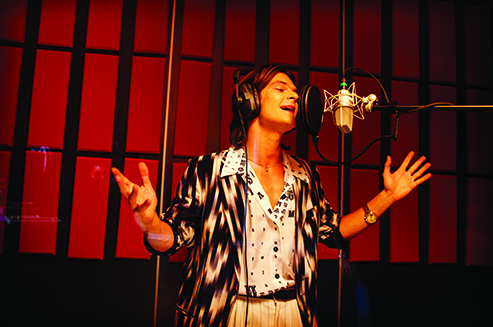Although the distinctive synth sounds echoed in Polish music for decades, an explosion of disco took place in the 90’s and, it is not difficult to associate the facts to conclude that it does not favour particular artists but rather developed an economy determined to expand this trend. Such steps inspire the comedy by Maciej Bochniak. The viewer does not get a compendium of knowledge about the genre of music but a story of the fall of communism, of the expansion of free market economy and prospects, which carried with it great change.
People brought up in the gray working-class reality suddenly gained unrestricted access to Western goods, and the privatization of business meant that enterprising individuals quickly could gain a fortune. Poles finally had the chance to become prosperous and began to dream their American dream. Unfortunately, decades of communism effectively dulled the nation’s sense of aesthetics, thus, out came glittering clothes, garden gnomes and wallpapers covered with exotic landscapes. Disco Polo turned to be the quintessence of change – kitsch, melodic, simple, and optimistic. Produced according to Western convention, clumsy videos proclaimed a new and better world. The TV star could have become anyone, enough for a basic familiarity with synthesizer and – for men – with a soft, high voice.
The director managed to create a mythological image of the beginnings of Polish capitalism. The kitschy result does not reflect the true realities of the time, but perfectly illustrates the overall atmosphere. A surreal feature is improved with genuine hits of disco and the characters appearing on the screen are not only the biggest stars of Polish cinema, but also musicians representing the mainstream of that time.
It is difficult to understand Polish modernity without the context of cultural transformations dating back to 90’s. “Disco Polo” by Maciej Bochniak definitely runs deep and somehow even explains the phenomenon that is currently undergoing a renaissance. Or perhaps it never really extinguished as it remains a natural and permanent part of Polish mentality? All interested are invited to a screening at the Play Poland Film Festival 2015!
For more information about the screening visit the website: Play Poland Film Festival | FB
Photo © Dawid Ogrodnik in „Disco polo” movie directed by Maciej Bochnik. /Piotr Litwic – Alvernia Studios/Next Film


